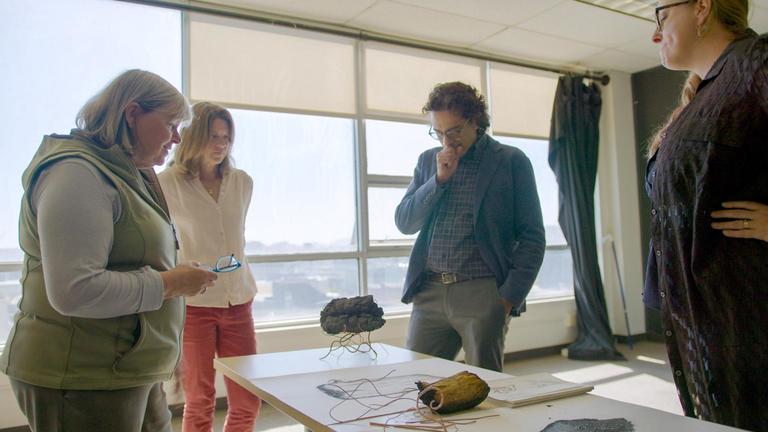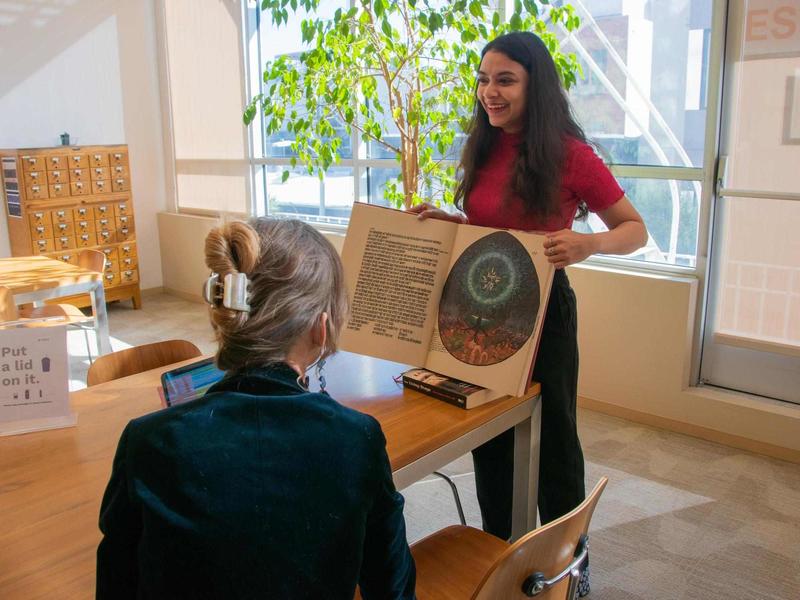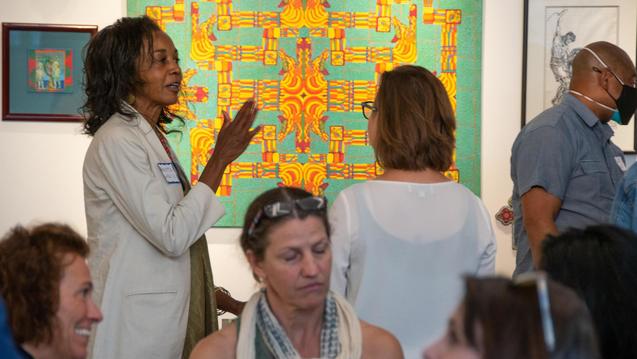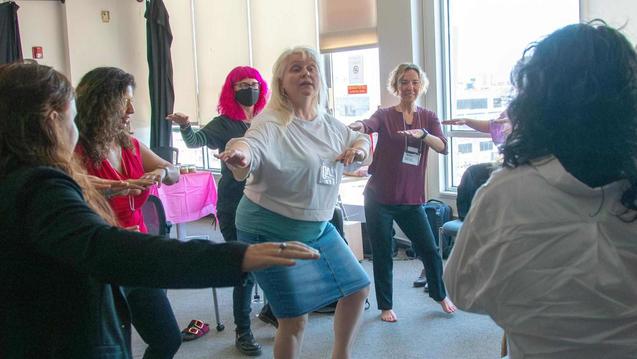
Academics
Groundbreaking. Forward-looking. Transdisciplinary. Our graduate and undergraduate programs blaze new trails in the understanding and practice of psychology, mental health, health and wellness, spirituality, advocacy, and more.
Every student at CIIS has the opportunity to transform.
Our distinguished programs are grounded in wellness, healing, social impact, and higher consciousness — and frankly, they are unlike most you will find in higher education today. We offer over 30 programs and professional certificates at the graduate and undergraduate level that span the fields of psychology, philosophy, spirituality, and the social sciences and humanities, while also transcending their disciplines.
Our Professional School of Psychology and Health offers programs in clinical psychology with an emphasis on depth psychology; integral counseling psychology that incorporates the body, mind, and spirit; somatic psychology and therapy, expressive arts therapy, drama therapy, and integrative health studies.
Our School of Consciousness and Transformation provides cutting-edge programs in philosophy, cosmology, and consciousness; ecology, spirituality, and religion; integral and transpersonal psychology, East-West psychology, and transformative leadership. Some programs were the first of their kind, such as our clinical master’s degree program in community mental health and Ph.D. in human sexuality.
Our Center for Psychedelic Therapies and Research (CPTR) offered the first-ever university-affiliated certificate program in psychedelics, which continues to serve as the gold standard for safe, effective professional training.
CIIS by the Numbers

#4
best Counseling Psychology program in California

98%
pass rate among graduates on the MFT licensure exam

World’s 1st
university-based program for psychedelic-assisted treatment and therapy


What is Integral Education?
Integral education encompasses all aspects of learning: the intellectual, the experiential, the spiritual, and the applied. At CIIS, learning is about more than accumulating knowledge — it’s about gaining and applying wisdom.
Our World-Class Faculty
Our faculty are leaders in their fields and passionate about educating tomorrow's psychotherapists, artists, philosophers, scholar-activists, and wellness and spiritual practitioners.
Three Schools, Limitless Possibilities
CIIS offers a range of academic paths and research opportunities, each grounded in wellness, healing, social impact, and higher consciousness. Our programs are unlike most found in higher education today.
Exploring the human experience through a pedagogy that honors multiple ways of teaching, learning, and knowing.
Integrating new and alternative approaches with established methodologies to advance mental health and embodied wellness.
Don't just finish your degree — find your path forward. Online and in person.
Find the Program that’s Right for You
29 academic programs, each offering transformative experiences for self, society and planet.
Your future awaits in our Ph.D., M.A., or MFA Degree programs. EXPLORE NOW →
Enhance your career and expand your knowledge. GO FURTHER →
Don't just finish your degree — find your path forward. Online and in person. TAKE THAT STEP →


Academic Resources
CIIS offers a wealth of resources and support to students throughout their academic careers. Browse our academic calendar, course catalog, and library's extensive online resources. Learn about how the Center for Writing and Scholarship and Dissertation Office can enhance your scholarship. Discover life-changing opportunities, such as our Fulbright Program and Bridge Mentorship Program.









